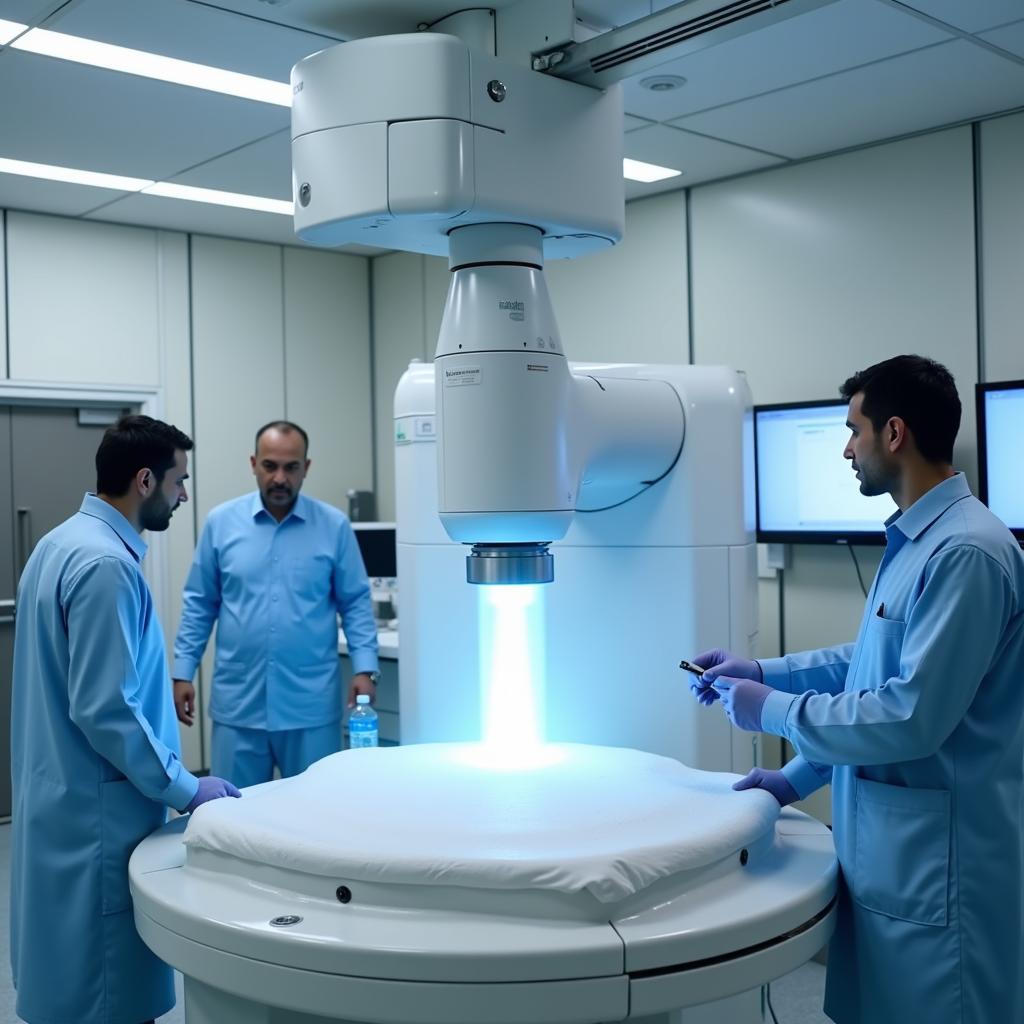Cyber knife treatment, a revolutionary form of radiosurgery, is gaining traction in Pakistan as a precise and non-invasive cancer treatment option. This advanced technology uses high-dose radiation beams to target tumors with pinpoint accuracy, minimizing damage to surrounding healthy tissue. For patients seeking an alternative to traditional surgery, cyber knife offers a potential path to recovery with fewer complications and a faster recovery time.
Understanding Cyber Knife Technology
Cyber knife is not a literal knife. It is a robotic radiosurgery system that delivers high-dose radiation to tumors with exceptional precision. Unlike traditional radiation therapy, which requires immobilizing the patient with frames and masks, cyber knife tracks tumor movement in real time. This allows for greater accuracy and minimizes the risk of harming healthy tissue. The treatment is typically delivered in one to five sessions, depending on the complexity and location of the tumor.
Benefits of Cyber Knife Treatment
Cyber knife offers several advantages over traditional surgery and radiation therapy, including:
- Non-invasive: No incisions are required, reducing the risk of infection and other surgical complications.
- Painless: The treatment itself is painless, and patients typically experience minimal discomfort.
- Precise Targeting: The robotic system delivers radiation with pinpoint accuracy, minimizing damage to surrounding healthy tissues.
- Shorter Treatment Time: Compared to traditional radiation therapy, cyber knife treatments are typically completed in fewer sessions.
- Faster Recovery: Patients can often return to their normal activities shortly after treatment.
 CyberKnife technology in a Pakistani hospital
CyberKnife technology in a Pakistani hospital
Who is a Candidate for Cyber Knife?
Cyber knife is an effective treatment option for a variety of tumors, including those located in the brain, spine, lung, liver, prostate, and pancreas. It is also suitable for patients who are not candidates for traditional surgery due to age, medical conditions, or tumor location. However, not everyone is a candidate for cyber knife. A qualified medical professional will evaluate each patient’s individual case to determine if this treatment option is appropriate.
What to Expect During Cyber Knife Treatment
The cyber knife procedure is typically performed on an outpatient basis. Before the treatment, patients undergo imaging scans to pinpoint the exact location and size of the tumor. During the treatment, the patient lies comfortably on a treatment table while the robotic arm delivers the radiation beams. The procedure is painless and typically lasts between 30 to 90 minutes per session.
Cyber Knife Treatment Centers in Pakistan
Several hospitals and medical centers across Pakistan are now offering cyber knife treatment. These centers are equipped with the latest technology and staffed by experienced medical professionals. It is crucial to choose a reputable center with a proven track record of successful cyber knife treatments.
Cost of Cyber Knife in Pakistan
The cost of cyber knife treatment in Pakistan varies depending on the complexity of the case and the number of sessions required. It is generally more expensive than traditional radiation therapy, but often less expensive than traditional open surgery. Many insurance providers cover cyber knife treatment, but it is important to check with your individual provider to determine your coverage.
Conclusion
Cyber knife treatment in Pakistan represents a significant advancement in cancer care, offering a precise, non-invasive alternative to traditional surgery for suitable candidates. By providing targeted radiation therapy, cyber knife minimizes damage to healthy tissues and promotes faster recovery. If you are considering cyber knife treatment, consult with a qualified medical professional to determine if it is the right option for you.
FAQ
- Is cyber knife painful? No, the treatment itself is painless.
- How many cyber knife treatments are needed? This varies depending on the tumor.
- What are the side effects of cyber knife? Side effects are generally mild and temporary.
- Is cyber knife covered by insurance? Check with your insurance provider.
- How long does recovery take after cyber knife? Recovery is typically faster than traditional surgery.
- Where can I find cyber knife treatment in Pakistan? Several hospitals now offer this treatment.
- What types of cancer can cyber knife treat? It can treat various cancers, including brain, spine, lung, and prostate cancers.
Need support? Contact us 24/7: Phone: +923337849799, Email: [email protected] or visit us at: Dera Ghazi Khan Rd, Rakhni, Barkhan, Balochistan, Pakistan. We have a dedicated customer service team ready to assist you.